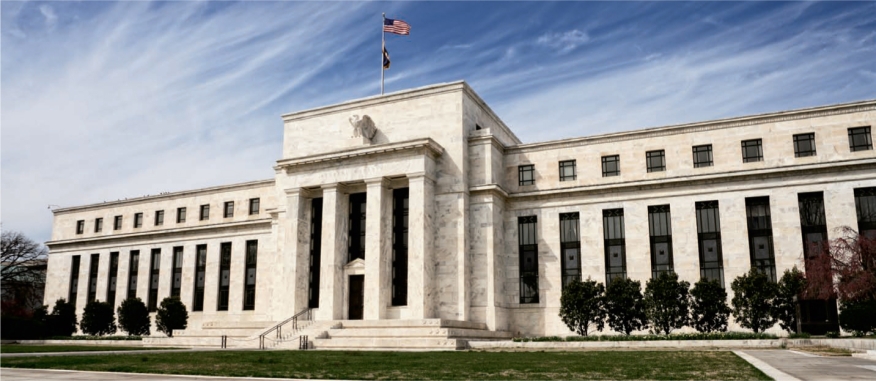
Banking Crisis Influenced Fed Rate-Hike Decision

Minutes of March FOMC meeting reveal staff now predict a 'mild recession' starting later this year.
Turmoil in the U.S. banking system has led many Federal Reserve officials to envision fewer rate increases this year, out of concern that banks will reduce their lending and weaken the economy.
The collapse of two major banks last month has heightened uncertainty surrounding the banking sector, and it helped Federal Open Market Committee (FOMC) members coalesce around their decision to raise their benchmark rate by just a quarter-point, rather than a half-point, at their meeting on March 21-22, according to minutes from that meeting released by the Fed on Wednesday.
The minutes also revealed that the Fed's staff economists now forecast that a pullback in bank lending will cause a “mild recession” starting later this year. This is a shift from their previous estimates, which had predicted that the economy would eke out positive growth this year.
According to the minutes, the staff suggested that if the impact of the banking turmoil ends up being less than economists' forecasts, a recession might be avoided.
Overall, the minutes showed the banking troubles have injected significant uncertainty into the Fed’s decision-making and reversed an emerging trend to keep raising rates aggressively to tame inflation. During their meeting last month, FOMC members projected that they will raise the benchmark short-term rate — which affects many consumer and business loans — just once more this year, in May. The FOMC is scheduled to meet May 2-3.
Before the collapse of Santa Clara, Calif.-based Silicon Valley Bank and the demise of New York-based Signature Bank, many Fed officials had said they expected to forecast more than one additional hike this year because economic and inflation data showed they still had more work to do to control the pace of price increases. According to the minutes of last month's meeting, however, Fed officials agreed that the collapse of the two large banks “would likely lead to some weakening of credit conditions,” as banks sought to preserve capital by curtailing lending to consumers and businesses.
Several FOMC members said they had considered supporting the option of leaving rates unchanged at last month's meeting, but they added that actions by the Fed, the Treasury Department, and the Federal Deposit Insurance Corp. (FDIC) to protect depositors had “helped calm conditions” in banking and reduced the risks to the economy in the short run.
Other officials said they had favored a half-point hike last month because hiring, consumer spending, and inflation data still pointed to a hot economy. But given the uncertainty resulting from the banking troubles, they “judged it prudent” to implement a smaller quarter-point increase.
The government's latest inflation data showed that price increases are slowing but remained at 5% annually, the lowest rate since May 2021 but still far above the Fed's 2% inflation target, making another quarter-point increase in its benchmark federal funds rate during its May meeting highly likely.
Fed officials who have spoken this week have suggested the FOMC will need to raise the rate for a 10th time in May. Economists outside the Fed increasingly expect the FOMC to pause its rate hikes after that.
Mary Daly, president of the Federal Reserve Bank of San Francisco, said Wednesday that the March inflation report was “good news,” but that price increases are “still elevated.”
“The strength of the economy and the elevated readings on inflation suggest that there is more work to do,” she said.
Yet she also suggested that the Fed's forthcoming rate decisions will hinge, in part, on how severely banks restrain lending.
“How much does that put the brakes on the economy so that we don’t have to tighten more?” Daly asked. “We don’t know the answer, but it’s one of the things we’ll focus on.”
The San Francisco Fed was the principal federal regulator for Silicon Valley Bank, but Daly declined to comment on the issue.




